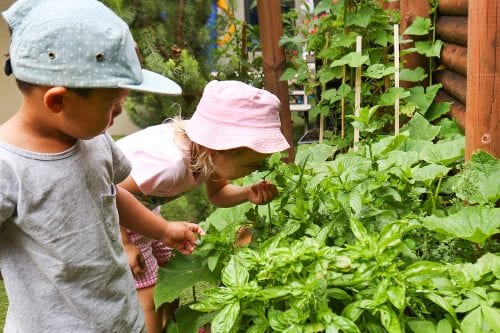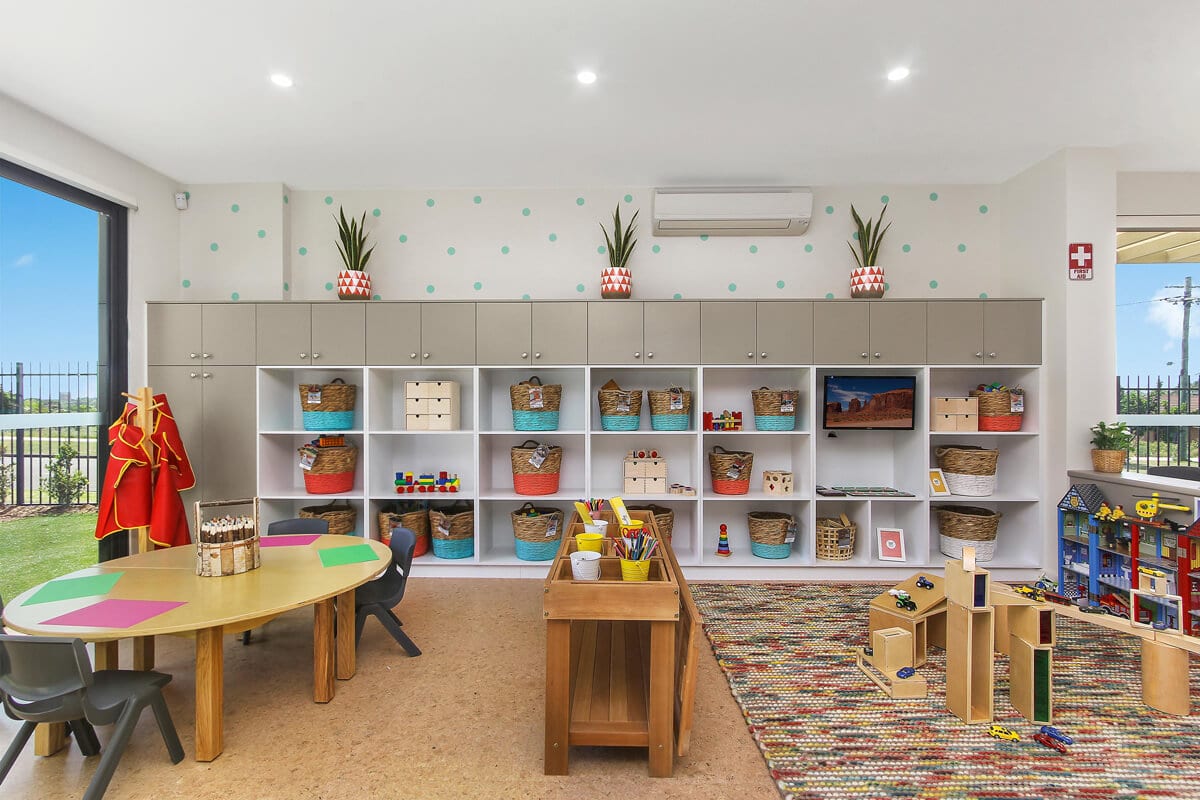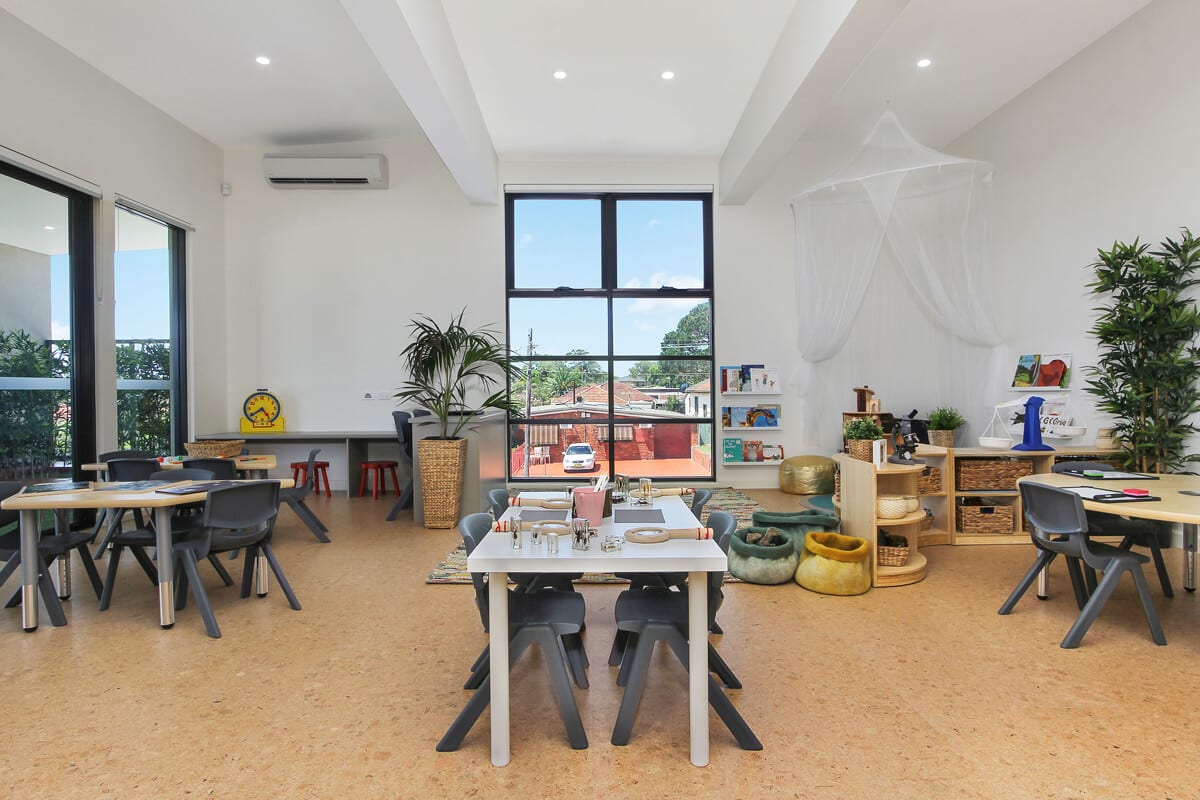Overview
Experiences the children have outside of the centre are incorporated into the planning of learning experiences, which are then explored by the children. We believe in developing culturally inclusive programs and practices in order for children’s home learning environment to be reflected.
Our Academy resembles more of a home-style environment than that of a school. The curriculum is child-led, therefore nurturing the interests of the children and encouraging their interest in learning.
Our program focuses on growing self-confidence, self-esteem, problem-solving skills and independence. The outdoor play area, with flexible equipment, is great for developing physical skills and coordination. The educational program integrates music, movement, art, STEM, excursions and special visitors such as Indigenous Australians, the reptile show and hatching chickens.
Children are encouraged to develop positive self concepts and to interact confidently with others who are different from them, including individuals from diverse backgrounds regardless of sex, age, class, cultural background or ability.
Our Academy is operated by diploma and university trained early childhood educators from diverse cultural backgrounds. All of our educators are trained to take an individualised/multicultural and anti-biased approach to childcare.
During their time at our Academy, your children can also benefit from our Educational School Readiness Curriculum including phonics, literacy, maths and our Music and Movement Curriculum.
Ages 2 to 3
Toddlers are beginning to develop social skills, grow their vocabulary and find their independence. To develop these skills, our childcare program offers group experiences as well as smaller group opportunities to better meet the unique needs of the individual child. The children daily have opportunities to explore and learn about their environment in both the inside and outside classrooms. The children are encouraged to communicate verbally and participate in individual and group conversations. Providing unique learning opportunities and experiences for the children with in this age group works towards enhancing the child’s self-concept and gives them a better start to a firm foundation in their preschool years.
Ages 4 to 5
Our preschool program offers a balance of free play as well as structured individual and group activities which gives the children a well balanced early education. At this age, children are developing more intimate peer relationships, asking questions about the world around them and developing their self-concept and control. In order to help grow these skills, our program offers opportunities and experiences in the areas of science, math, beginning reading and writing experiences, gross and fine motor skills, dramatic play, constructive play, creative and movement activities. Each child is viewed as a unique person with an individual pattern and timing of growth and development. Different levels of ability, development and learning styles are considered when developing appropriate activities for this class.
School Transition
Our Academy has strong links with the schools in the local area. As many of our children will start their school experience at one of these schools, we believe it is crucial to foster good relationships with them in order to support the child’s transition.
We help children prepare for this transition through school readiness experiences, which take place throughout the year. During these activities, preschoolers are placed into their own group, and participate in relevant experiences/projects that interest and educate them throughout the day.
Towards the end of the year, our school readiness program becomes more structured and the children are involved in a variety of fun related ‘school’ experiences.
A Place to Grow’s Transition to School Program aims to support children to:
- Develop confidence in going to school
- Have trust in the adults at the school
- Develop effective social/group skills
- Develop confidence in themselves
- Develop effective pre-writing, number, shapes, colours and letter recognition skills.
Developmental Records
Developmental records are completed by our qualified teachers and are recorded in the child’s online individual portfolio. These include observations using learning stories, reflective journals, work samples and project work the children have been involved in.
Outdoor Learning Environments

A Place to Grow’s Outdoor Learning Environments (OLEs) stimulate the diversity of children’s play experience and contribute to their healthy development. Best practice design of OLEs incorporates trees, shrubs, vines, flowers, grasses, edible fruits and vegetables—to connect children with nature and diversify their outdoor experience.
We introduce activities such as ‘natural treasure hunts’ or ‘nature walks’ to stimulate children’s curiosity and encourage them to interact with the natural world.
At A Place To Grow, our educators use natural materials within some aspects of the program. For example, using natural items such as seed pods, pebbles, leaves and sticks for collage or for sorting, matching and counting games, painting with natural implements such as sticks, leaves, pebbles or adding bark and twigs to sand play areas.
These types of activities provide children with opportunities to explore elements of the environment and can foster the development of positive feelings and attitudes towards nature.
As children explore the environment and natural materials, it is important to help broaden their understanding of how nature and people interrelate.


